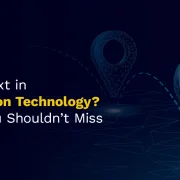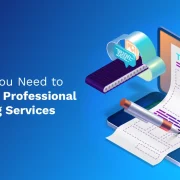
6 Ways to Help K-12 Students Perform Virtual Experiments Remotely
Experiments or practical experiences in K-12 STEM subjects are important to make fundamental concepts more relatable for students and thus help them understand their practical application and achieve overall course objectives. This makes a laboratory component or experiments a crucial part of every K-12 course curriculum. However, with many schools operating mostly or even completely virtually, teachers today face the dilemma of recreating this critical experience in a remote learning environment.
This blog aims to outline how teachers can enable their students to perform virtual experiments remotely.
Table of Contents:
- Six Ways to Help K-12 Students Perform Virtual Experiments
1. Video Demonstrations
2. Offering Online Simulations
3. Preparing Take-Home Kits for Remote Experiments
4. Student-Led Experiments
5. Show and Tell
6. Virtual Labs - Conclusion
Six Ways to Help K-12 Students Perform Virtual Experiments
There are three different ways instructors can conduct virtual experiments with students remotely and online. These include-
-
- Asynchronous method – Where you and your students work on experiments at different times
- Synchronous method – Where you and your students coordinate the time of the experiment and work together
- Virtual labs and simulations – These can be asynchronous, synchronous, and even use a blended approach.
Based on these types, here are some ways you can help your students perform experiments remotely-
1. Video demonstrations
YouTube is an excellent source with many practical video demonstrations that K-12 students can watch and practice from. These videos cover a range of science experiments based on relevant topics and include a lot of information, introspective questions, and links to related resources and additional learning material.
Once the students are done practicing, you can challenge them to find the best demonstration of a particular practice to share online with the entire class.
Another option is to record a video where you perform the experiment and post it to the course. You can then ask students to explain the results they observed by applying the concepts they’ve learnt during the course.
2. Offering online simulations
Another way to help students perform virtual experiments in a remote environment is using interactive simulations for physics, chemistry, biology, and even math concepts. These activities aim to provide students with an open-ended exploratory environment so they can learn at their own pace. The game-like environment is a proven method for improving the way students engage with content.
For instance, a biology simulation where K-12 students use optical tweezers to stretch a strand of DNA lets you recreate an experiment that would otherwise require sophisticated equipment with a fraction of the investment and operating cost.
3. Preparing take-home kits for remote experiments
Preparing simple, safe lab kits that K-12 students could pick up and complete at home is another excellent way to help them perform virtual experiments. The kits can be designed with various simple and home-safe supplies with no requirement of electronic scales or other such tools that the school couldn’t allow out of the classroom. For instance, a quick take-home chemistry kit about iron oxidation can include salt, hydrogen peroxide, and non-galvanized nails/ iron filings.
These take-home kits are a great way to keep all kids doing engaging science lab work from the comfort of their homes.
4. Student-led experiments
Yet another way to make students perform experiments virtually is to divide students into groups and ask them to work collaboratively to come up with practical experiment ideas for recently covered topics.
Start by asking them to give you a list of lab materials they think will be required. You can even give them a list of materials they can use and let them come up with creative ways to utilize them. Once that’s done, you can select two or three of the best options and poll the entire class to see which experiment they’d like to see you perform in a live virtual session.
Share all the instructions, and explain what you’re doing at each step. During the virtual experiment class, make sure to pause before each step to engage the students by asking them to analyze the outcome of the previous step and predict what will happen in the next one.
5. Show and tell
With young K-12 learners, you can also play a game of science show and tell. This is quite simple but very effective, and all you need to do is pose a question and ask students to support their answer by demonstrating the concept with whatever they have available at home.
Here are some ideas for experiments that can easily be done with common household materials-
-
- Earth exploration experiment – Requires floss and modeling clay of different colors.
- Lava bottle experiment – Tall and thin plastic bottle, effervescent antacid tablets, food coloring, and vegetable oil.
- Paper parachutes experiments – Strings, napkins, feathers, markers, scissors, toys, and rocks.
6. Virtual labs
A virtual lab is an interactive virtual environment where K-12 students can perform predefined experiments. These can be one of the most important eLearning tools, allowing your students to conduct various experiments without any of the constraints of physical laboratories, like equipment, supplies, safety, time, and even space.
Virtual labs incorporate various pedagogical techniques proven to facilitate a better understanding of theoretical information, including visual learning, active learning, recall-based learning, gamification & storytelling.
Just remember that the point of a virtual lab is to reinforce non-motor skills like remembering procedures and safety precautions, documenting experiments, and observing outcomes. A good virtual lab doesn’t need to be complex and doesn’t require a lot of investment. Having the right development partner who can align the objectives and interactivity with realistic outcomes is critical for K-12 virtual labs.
Read More: The Benefits of Virtual Science Labs
While it’s something that gets overlooked often, there are a number of options for performing experiments and demonstrations for K-12 students virtually. In fact, the digitization of the K-12 curriculum has opened the doors for extending laboratory and experiential learning outside the physical space. Students can make practical, real-world connections to what they are learning online.
In the end, it is important to remember that the goal is not to replicate or replace the classroom experience but to find ways of fulfilling objectives and providing students with what they need to continue their education.

Senior Vice President – Business Development
at Hurix Digital, with over 25 years of experience in EdTech and workforce learning. He excels in business development, customer relationship management, and scaling digital learning solutions, driving global growth through innovative content, simulations, and AI‑driven training offerings





